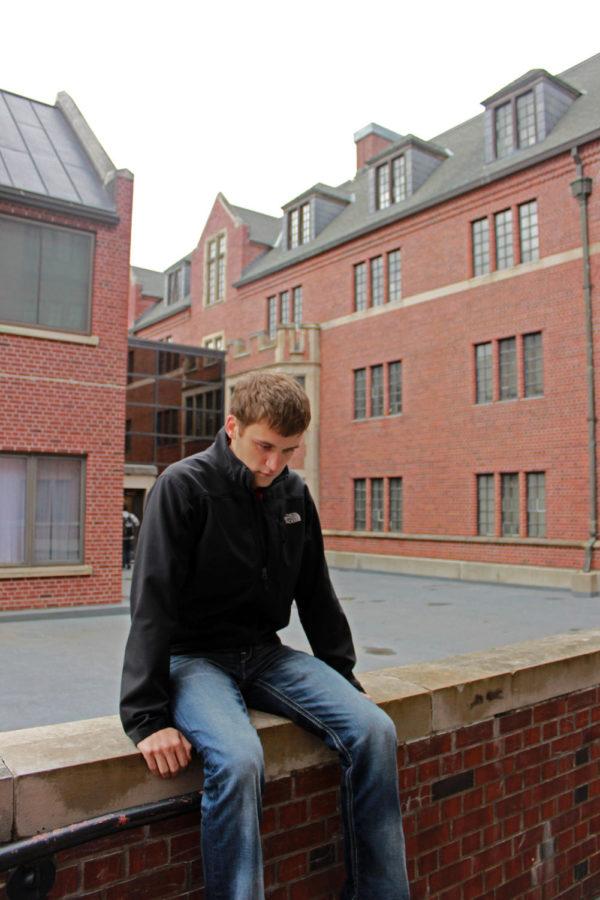Don’t let it get you down: Seasonal Depression
Kyle Schlichting/Iowa State Daily
Students, especially around the holidays and midterms, struggle with depression and don’t know where to go and when to go for help.
October 14, 2014
Seasonal Affective Disorder, more commonly know as seasonal depression, is an unexplained sadness that seems to always come around at the start of fall and last throughout the months of never-ending snowfall.
Often feeling moody or blue can be associated with the cold weather winter brings and hours of daylight available.
“Seasonal depression, and all depression, has a biological basis and so quite often it’s a combination of stress and just kind of an inherited biological vulnerability” Said Carolyn Cutrona, Ph.D., department of psychology chair and professor.
So, how does one know if they have a case of severe seasonal depression?
“Feeling hopeless, feeling unhappy, having trouble sleeping, or sleeping too much. Having trouble concentrating, sometimes suicidal thoughts, so it’s pretty serious. Appetite problems, either eating too much, or not eating enough, those are the symptoms of a major depressive disorder” Cutrona said.
When it comes to coping with seasonal depression, students should avoid isolating themselves and get involved in activities of interest. Socializing with others and staying busy can create a good distraction for those everyday moody feelings one might experience.
In addition, feeling down and depressed while at school may be associated with homesickness, which many students deal with, especially freshmen. Being away from home for several months at a time can be hard, but allows opportunities for student to find things to keep them occupied.
“I try to keep busy and go to events and activities to distract myself from being homesick” said Mikenze Marrone, freshman in business.
As winter approaches, some may want to stay in their dorms to shield from the cold. But this actually has the potential to make one feel even more homesick. Therefore, one should avoid isolation at all costs.
“Seek support, and engage in self-care activities. Whether this means coming to the counseling center, walk-in appointment to get started available M-Th 8 a.m. – 3 p.m. and F 8 a.m. – 12 p.m., talking to friends and family or engaging in activities that you enjoy” said Dr. Tiffany Iskander, outreach coordinator and staff psychologist for student counseling services.







